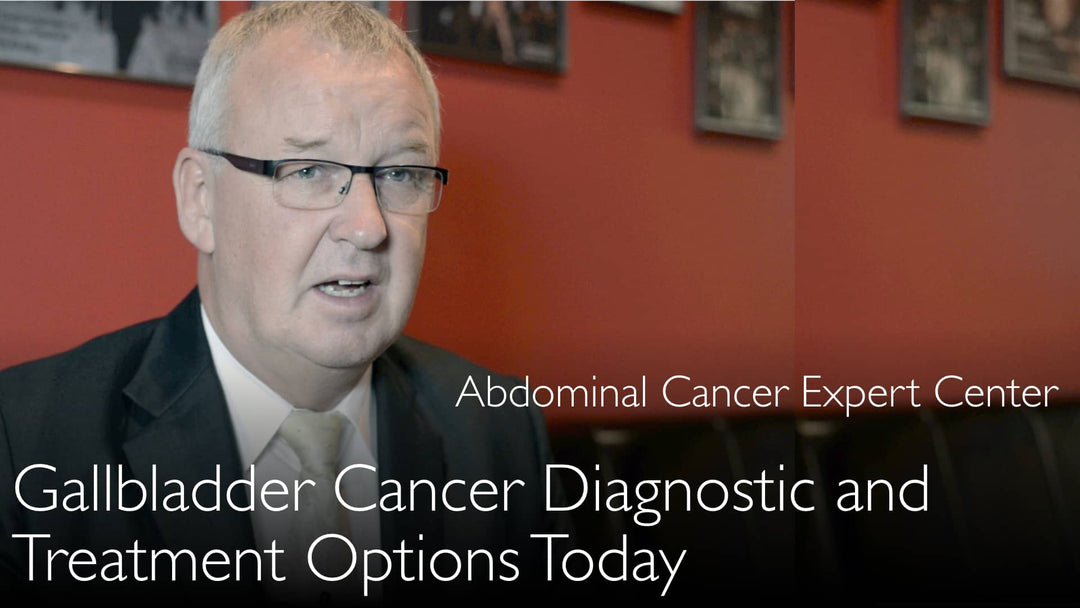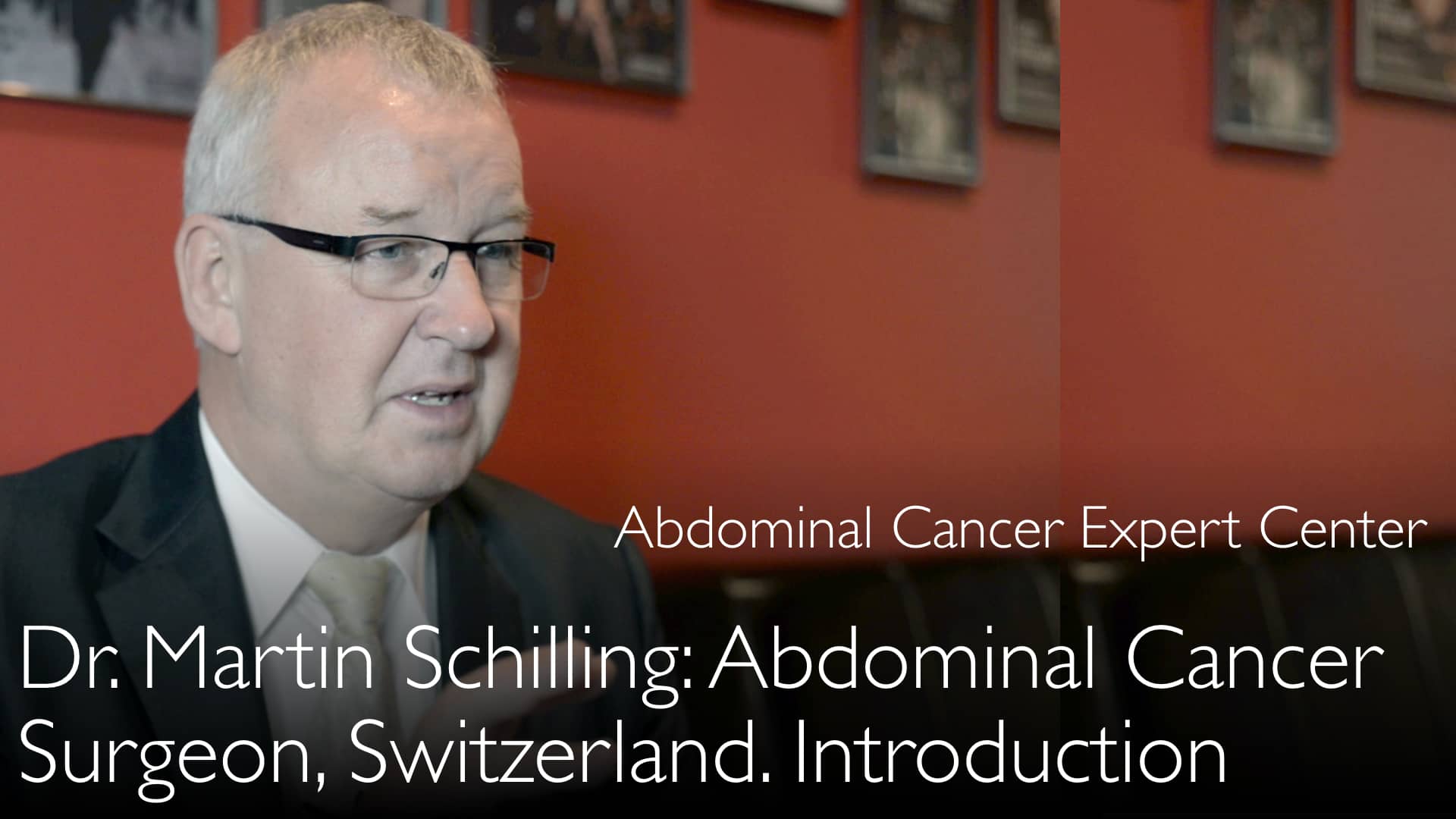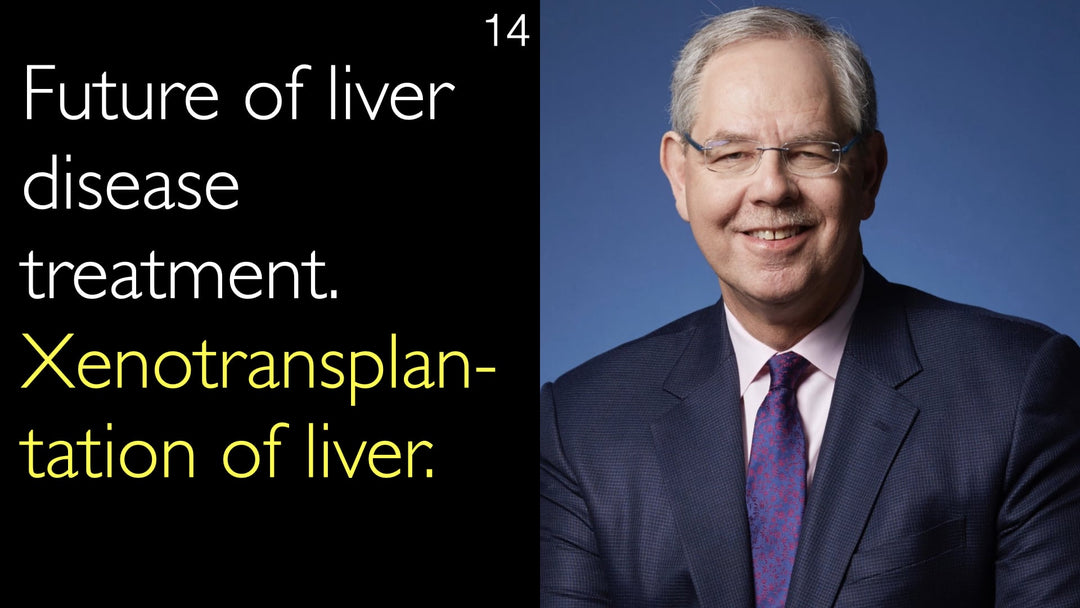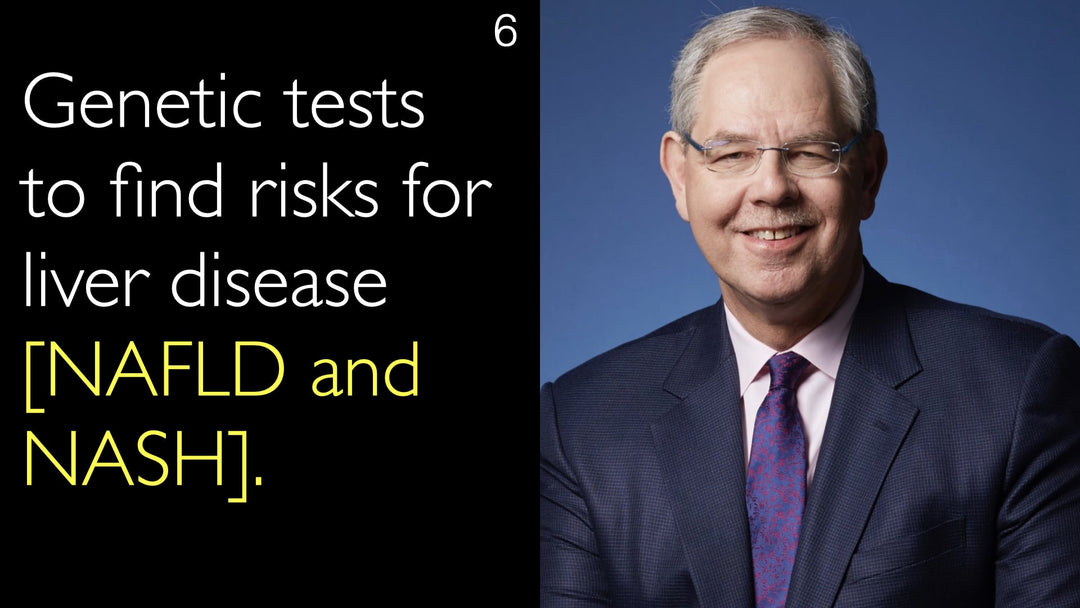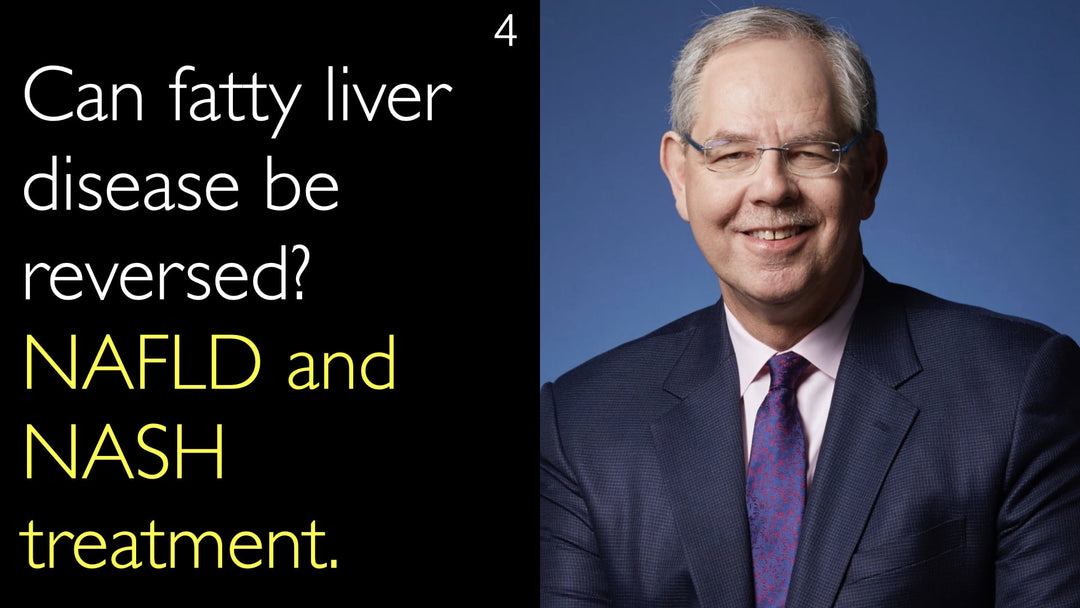Suolistokanavan syöpäkirurgian johtava asiantuntija, lääketieteen tohtori Martin Schilling käsittelee sappirakkosyövän hoitomahdollisuuksia. Hän avaa yksityiskohtaisesti satunnaisesti löydetyn ja oireilevan sappirakkosyövän keskeiset erot. Tohtori Schilling suosii radikaalia leikkausta jo varhaisvaiheen taudissa paikallisen uusiutumisen ehkäisemiseksi. Hän pohtii myös edenneen sappirakkosyövän heikkoa ennustetta ja lääketieteellisen toisen mielipiteen merkitystä. Tämä haastattelu tarjoaa ratkaisevan tärkeitä näkökulmia potilaille ja heidän perheilleen, jotka kamppailevat tämän aggressiivisen syöpätyypin kanssa.
Edistyneet kirurgiset strategiat sappirakkosyövän hoidossa
Hyppää osioon
- Sattumanvarainen vs. oireellinen löydös
- Radikaali kirurginen lähestymistapa
- T1-tumoren hoitosuositukset
- Edistyneen vaiheen hoitovaihtoehdot
- Lääketieteellisen toisen mielipiteen rooli
- Koko tekstitys
Sattumanvarainen vs. oireellinen löydös
Sappirakkosyövän diagnoosi jakautuu kahteen pääryhmään. Tohtori Martin Schilling, MD, selittää, että syöpä löytyy usein sattumalta rutiinikolekystektomian yhteydessä. Tällainen sattumanvarainen löydös sattuu tyypillisesti varhaisessa vaiheessa, kuten T1 tai T2. Näiden potilaiden ennuste on huomattavasti parempi verrattuna oireellisesti esiintyviin potilaisiin.
Oireellinen sappirakkosyöpä viittaa yleensä hyvin edistyneeseen vaiheeseen. Potilailla, jotka tulevat erikoislääkärin vastaanotolle uusien oireiden vuoksi, on usein vain vähän hoitovaihtoehtoja. Tohtori Martin Schilling, MD, toteaa, että näissä edistyneissä tapauksissa leikkaushoito on usein vain rajallisesti mahdollista. Tämä jyrkkä ero korostaa varhaisen toteamisen tärkeyttä, vaikka se onkin usein haastavaa.
Radikaali kirurginen lähestymistapa
Radikaali leikkaus on kulmakivi leikattavissa olevan sappirakkosyövän hoidossa. Laaja leikkaus voi sisältää osan maksasta ja mahdollisesti myös paksusuolen poiston. Tavoitteena on varmistaa, ettei syöpä uusiudu paikallisesti. Tohtori Martin Schilling, MD, korostaa, että jopa varhaisvaiheen syövät vaativat tämän aggressiivisen lähestymistavan.
Tohtori Schilling suosittelee näitä laajoja leikkauksia nuoremmille ja hyväkuntoisille potilaille. Huolimatta leikkauksen laajuudesta, pitkän aikavälin ennuste ei aina ole suotuisa edistyneissä tapauksissa. Keskiössä on täydellisen poiston saavuttaminen parhaan mahdollisen selviytymisen takaamiseksi. Tämä strategia on ratkaisevan tärkeä tämän aggressiivisen sairauden hoidossa.
T1-tumoren hoitosuositukset
Tohtori Martin Schilling, MD, kannattaa radikaalia leikkausta jopa T1-sappirakkosyövässä ilman imusolmuketartuntaa. Hänen suosituksensa perustuu vakuuttaviin tutkimustuloksiin. Noin 10 % T1-sappirakkosyöpäpotilaista kuolee viiden vuoden kuluessa paikallisen kasvaimen uusiutumisen vuoksi.
Tämä uusiutumisriski viittaa siihen, että alkuperäinen hoito ei välttämättä ole ollut riittävän laajaa. Siksi tohtori Schilling kannattaa vahvasti maksan osanpoistoa näille varhaisvaiheen potilaille. Hän erityisesti suosittelee tätä lähestymistapaa nuoremmille T1- tai T2-tumoreilla oleville potilaille. Tämä aggressiivinen näkökulma pyrkii poistamaan mikroskooppisen sairauskudoksen ja estämään tuhoisan uusiutumisen.
Edistyneen vaiheen hoitovaihtoehdot
Hoitovaihtoehdot vähenevät, kun sappirakkosyöpä todetaan hyvin edistyneessä vaiheessa. Leikkaushoito ei useinkaan ole mahdollista myöhäisvaiheen oireellisilla potilailla. Tohtori Martin Schilling, MD, vahvistaa, että ennuste näissä tilanteissa on huono.
Sairauden aggressiivinen luonne muistuttaa haimasyöpää. Oireenmukainen hoito ja systeemiset hoidot voivat olla ensisijainen kohde. Tohtori Anton Titov, MD, käsittelee metastaattisten muutosten hoidon haasteita. Keskustelu korostaa tarvetta tehokkaammille systeemisille hoidoille edistyneelle taudille.
Lääketieteellisen toisen mielipiteen rooli
Lääketieteellinen toinen mielipide on korvaamaton sappirakkosyöpäpotilaille. Se auttaa selventämään diagnoosia ja vahvistamaan syövän vaiheen. Tohtori Martin Schilling, MD, selittää, että se on ratkaisevan tärkeää määritettäessä, onko maksametastaseille suunnattu leikkaus mahdollinen vaihtoehto.
Toisen mielipiteen hakeminen tohtori Anton Titovilta, MD, vahvistaa, että tämä vaihe on välttämätön monimutkaisten hoitopäätösten tekemisessä. Tämä prosessi on erityisen tärkeä harvinaisessa ja aggressiivisessa syövässä kuten sappirakkosyöpä.
Koko tekstitys
Tohtori Anton Titov, MD: Johtava suolistosyöpäkirurgi käsittelee sappirakkosyövän hoitovaihtoehtoja. Sappirakkosyövän sattumanvarainen löytäminen kolekystektomian yhteydessä edellyttää radikaalia leikkausta maksan ja paksusuolen osan poistamiseksi. Meidän on varmistettava, ettei sappirakkosyöpä uusiudu paikallisesti.
Kun sappirakkosyöpä ilmenee oirein, radikaali hoito ei aina ole mahdollista sairauden myöhäisen vaiheen vuoksi.
Sappirakkosyövän hoitovaihtoehdot tohtori Martin Schillingin, MD, kanssa. Oireellinen sappirakkosyöpä ilmenee yleensä hyvin myöhäisessä vaiheessa.
Tohtori Anton Titov, MD: Sappirakkosyövän sattumanvarainen löydös kolekystektomian jälkeen antaa paremman ennusteen. Kuitenkin jopa vaiheen 1 tai 2 sappirakkosyöpä tulisi poistaa radikaalisti maksan osanpoiston kera.
Kymmenen prosenttia varhaisvaiheen sappirakkosyövistä uusiutuu paikallisesti samalla anatomisella alueella. Sappirakkosyövän paikallinen uusiutuminen on riski, jos leikkaus ei ole riittävän radikaali.
Lääketieteellinen toinen mielipide selventää sappirakkosyövän diagnoosia. Se auttaa päättämään, onko maksametastasien leikkaus mahdollinen sappirakkosyöpäpotilailla.
Paras hoito edistyneelle vaiheen 4 sappirakkosyöpäpotilaalle, joilla on maksametastaaseja.
Tohtori Martin Schilling, MD: Lääketieteellinen toinen mielipide johtavalta asiantuntijalta auttaa löytämään parhaan hoidon sappirakkosyöpäpotilaalle, joilla on maksametastaaseja.
Tohtori Anton Titov, MD: Hanki lääketieteellinen toinen mielipide edistyneestä sappirakkosyövästä ja ole varma, että hoitosi on paras mahdollinen. Paras sappirakkosyövän hoitokeskus maksametastaaseille.
Videohaastattelu johtavan suolistosyöpäkirurgin kanssa. Sappirakkosyövän hoitovaihtoehdot.
Tohtori Anton Titov, MD: Sappirakkosyöpä on myös hyvin aggressiivinen syöpä. Se on luonteeltaan ehkä verrattavissa haimasyöpään aggressiivisuudessaan.
Joskus sappirakkosyöpä todetaan varhaisessa vaiheessa, jolloin hyvät hoidontulokset ovat mahdollisia. Sappirakkosyövän varhainen toteaminen on kuitenkin vaikeaa.
Millaisia tekniikoita käytätte sappirakkosyövän hoidossa?
Miten sappirakkosyöpäpotilaat voivat hyötyä hoidostanne?
Tohtori Martin Schilling, MD: Olette oikeassa, että sappirakkosyöpä todetaan hyvin edistyneessä vaiheessa tai sattumalöydöksenä, esimerkiksi histologisen tutkimuksen yhteydessä rutiinikolekystektomian jälkeen.
Sappirakkosyövän hoito näille kahdelle potilasryhmälle eroaa toisistaan. Useimmiten sappirakkosyöpäpotilaat tulevat meidän luoksemme hyvin eri vaiheissa.
Potilaat tulevat vastaanotolle vastadiagnosoidulla sappirakkosyövällä ilman aiempaa kolekystektomiaa. Heillä on yleensä hyvin edistynyt sappirakkosyövän vaihe.
Edistyneessä sappirakkosyövässä leikkaushoidon mahdollisuudet ovat usein rajalliset. Voimme tehdä hyvin laajoja poistoja sappirakkosyövän hoidossa.
Voimme poistaa syöpää, joka on levinnyt pääasiassa oikeaan maksanosaan. Voimme tehdä suoliston osan poiston.
Suosittelemme leikkaushoitoa yleensä nuorille sappirakkosyöpäpotilaille. Leikkaamme kirurgisesti hyvin hyväkuntoisia sappirakkosyöpäpotilaita.
Tohtori Anton Titov, MD: Mutta hoidosta huolimatta näiden sappirakkosyöpäpotilaiden pitkän aikavälin ennuste ei ole kovin hyvä.
Tohtori Martin Schilling, MD: Tilanne on hyvin erilainen sattumanvaraisesti diagnosoiduilla sappirakkosyöpäpotilailla. Sattumalöydöksenä todetut sappirakkosyövät ovat yleensä T1- tai T2-tumoreita.
Yleensä ainoastaan kystisen imusolmukkeen tartunta näkyy sappirakkosyövässä. Nämä potilaat hyötyvät ehdottomasti leikkaushoidosta sappirakkosyövän poistamiseksi.
Henkilökohtaisesti uskon, että jopa T1-sappirakkosyöpäkasvaimet ilman imusolmuketartuntaa tulisi hoitaa radikaalisti.
Syy radikaaliin leikkaukseen T1-sappirakkosyövän hoidossa on seuraava: jopa T1-tumoreiden vaiheessa menetämme edelleen 10 % T1-sappirakkosyöpäpotilaista viiden vuoden kuluessa.
He kuolevat kasvaimen paikallisen uusiutumisen vuoksi. Se tarkoittaa, että näitä sappirakkosyöpäpotilaita ei ole hoidettu riittävän radikaalisti.
Siksi kannattaisin maksan osanpoistoa näille T1-sappirakkosyöpäpotilaille, erityisesti nuoremmille T1- tai T2-sappirakkosyöpäpotilaille.
Tohtori Anton Titov, MD: Professori Schilling, kiitoksia paljon tästä erittäin tärkeästä keskustelusta. Se on erittäin informatiivista kaikille potilaille, jotka näkevät nämä videot.
Tohtori Martin Schilling, MD: Sappirakkosyövän hoitovaihtoehdot riippuvat siitä, onko diagnoosi tehty oireiden ilmaantumisen jälkeen vai sattumanvaraisena löydöksenä.
Tohtori Anton Titov, MD: Radikaalimpi sappirakkosyövän leikkaus on paras.


